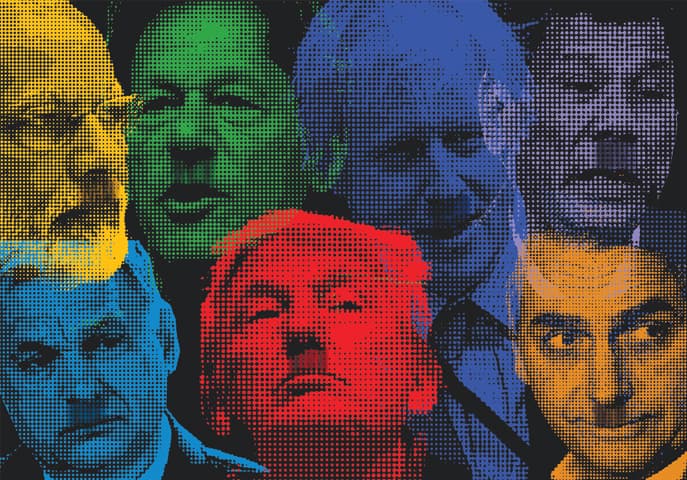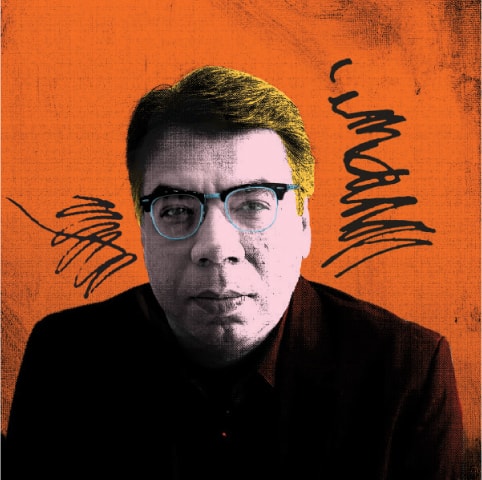
"Fascism (as a word) has been destroyed through overuse,”writes British journalist Brendan O’Neill in an editorial for Spike,February 20, 2017, “its original sense and power diluted by a million op-eds branding unpleasant politicians ‘fascists’and by radical marchers hollering ‘fascist scum’ at anyone who irritates them.”
O’Neill isn’t only irked by excitable left or liberal ‘social justice warriors’ flaunting this word. He writes that those on the right too are now likely to scream “fascist” at leftists. “Liberal fascist” is one such slur often used by those on the right to describe activists from the left. Ironically, according to British author Stuart Jeffries, the expression ‘liberal fascism’ was first used by the famous writer H.G. Wells, who was a self-professed socialist.
Even more curious is the fact that Wells, when he first used it in 1932, did not utter it as a slur. According to P. Coupland (in the October 2000 issue of Journal of Contemporary History) Wells, after becoming disillusioned by socialism and parliamentary democracy, contemplated the need to create a “liberal Fascisti for enlightened Nazis.”
Is ‘fascism’, a hugely destructive phenomenon of the 20th century, relevant today as anything more than a buzzword?
Bear in mind that, in 1932, fascism as an ideology was mushrooming in Italy and Germany and wasn’t seen as the monstrous idea that it would eventually become during and after World War II. In fact, it was supported by large numbers of people in Europe and the US, especially during the intense economic crises of the late 1920s and early 1930s.
So Wells was considering the creation of an ‘enlightened fascism’ which he described as “liberal fascism”. But as the horrors of fascist regimes in Germany and Italy became common knowledge during and soon after the War, the expression “liberal fascism” quietly mutated to mean something entirely different.
For decades, it remained on the fringes of post-World War political discourse, mostly uttered by lesser-known right-wing American politicians to denounce civil rights groups, advocates of the welfare state, and the progressive wing of the Democratic Party.
It was rescued from the fringe and placed in the mainstream by Jonah Goldberg’s 2009 book Liberal Fascism. The book was largely controversial for being overtly binary in its understanding of ideologies, but it sold well.
Even though its thesis, that fascism was historically a product of failed leftists, was panned by critics as being rather dodgy, this isn’t what was picked up by Goldberg’s admirers. Instead, it was the fact that the term liberal fascist had gone mainstream is what excited right-wing commentators the most. They began to use it to mean extreme liberalism as opposed to the meaning Goldberg was ambitiously trying to furnish. This was also when one saw a number of Pakistani TV anchors and even the current PM of Pakistan use it, mainly to lambast those who were asking for military action against religious insurgents.
In Political Ideologies, the political theorist Paul Wetherly writes that, with the defeat and collapse of ‘classical fascism’ in the 1940s, ideologues and politicians still sympathetic to the idea watered down the more demagogic and violent aspects inherent in the fascism of Hitler’s and Mussolini’s regimes.
They replaced these with extreme positions on immigration and what Wetherly calls “cultural differentiation”. To disassociate themselves from the more malevolent and abhorrent doctrines of classical fascism, post-WWII fascist groups not only eliminated the word fascist from their names, but also agreed that no race or culture was superior to the other.
For example, after the war, groups such as the British Union of Fascists became simply the British Union. Wetherly writes that, even though they were not preaching the superiority of one race over the other anymore, they pointed out (through the ‘cultural differentiation’ argument) that cultural diversity is best served if cultures remain delimited and were not swamped by multiculturalism.

According to Wetherly, such groups can still be called fascist. But he echoes the concerns of various political scientists who lament that the word fascist when used as casually as it is these days is actually trivialising the destructive phenomenon that it became. They believe that ‘historical fascism’ or the one that rose in Europe in the early 20th century was too atrocious an idea to be turned into a hasty buzzword to insult a political or ideological opponent.
Recently, various populist politicians have been labelled as fascists by their detractors. These include US President Donald Trump, Indian PM Narendra Modi, British PM Boris Johnson, Philippine PM Rodrigo Duterte, Brazilian President Jair Bolsonaro, Hungarian PM Viktor Orban and even Pakistani PM Imran Khan.
But are these leaders really fascist? In 1998, Colombia University’s Professor Robert Paxton — one of the most respected authorities on the study of fascism — defined fascism as “a form of political practice distinctive to the 20th century that arouses popular enthusiasm by sophisticated propaganda techniques for an anti-liberal, anti-socialist, violently exclusionary and expansionist nationalist agenda.”
In The Anatomy of Fascism, Paxton explains that, for fascism to take root, certain complex and even drastic economic and political conditions are required. Recent commentators in this respect point out that the electoral rise of the mentioned populists across the world is a drastic development, but their regimes are simply populist with certain mild fascistic features.
However, as the historian Andrew Gawthrope recently wrote in The Guardian, the current lot of populists in Asia, Europe, South America and the US may not be fascists in the classical sense, but these leaders are surely bordering on the many hazardous tendencies of classical fascism and this should be treated as a concern.
Today’s mainstream populists may never be able to become the next Hitler or Mussolini. Yet it cannot be ruled out that, had 20th-century conditions been present today, these same leaders would not have hesitated to become authentic fascists.
Published in Dawn, EOS, October 20th, 2019















































